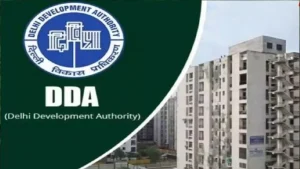Redevelopment of housing societies in Maharashtra has become one of the most crucial ways to rejuvenate old and dilapidated buildings, provide better living standards, and optimize urban land use. With the new year, the Maharashtra government has updated redevelopment rules in 2025, bringing clarity, transparency, and modernized norms under frameworks like UDCPR (Unified Development Control and Promotion Regulations) and DCPR 2034.
This blog provides a detailed, step-by-step explanation of the latest redevelopment rules for housing societies in Maharashtra 2025, covering aspects like consent requirements, FSI, TDR, UDCPR norms, transparency measures, legal safeguards, and more. If you are part of a housing society considering redevelopment in 2025, this guide will answer all your questions systematically.
Also Read:- What are the New Construction Rules in Maharashtra?
What are Maharashtra Society Redevelopment Rules 2025?
The Maharashtra society redevelopment rules 2025 aim to balance the interests of society members, developers, and regulatory authorities. Key provisions include:
- Mandatory transparency in tendering and selection of developers.
- Clearly defined FSI and TDR norms under UDCPR guidelines.
- Compulsory consent percentage from members before redevelopment approval.
- Protection measures for members in MoU and registered redevelopment agreements.
- Updated timelines for project approvals, construction, and occupation certificates (OC).
- Coverage of projects under RERA 2.0 for accountability.
Also Read:- Proposed RERA‑like Law for Redevelopment (2025 policy)
What is Minimum Consent for Redevelopment 2025?
As per the latest rules, a minimum of 51% member consent is required for initiating redevelopment proposals in smaller societies, while larger societies often need 60% to 70% consent depending on the project size and category. This ensures that redevelopment isn’t forced on unwilling members but progresses with majority agreement.
How many Members Needed for Redevelopment Approval?

The number of members needed for redevelopment approval is calculated based on the total strength of the society. Typically:
- For societies with less than 50 members, 51% consent is sufficient.
- For societies with more than 50 members, around 60% consent is mandated.
- Larger clusters or layouts may require higher consent thresholds.
Also Read:- New FSI Rules for Redevelopment 2025
What is the Role of PMC in Redevelopment?

A Project Management Consultant (PMC) plays a critical role in ensuring transparency and safeguarding members’ interests. Their responsibilities include:
- Preparing a feasibility report and guiding the society on redevelopment options.
- Drafting tender documents and ensuring fair bidding.
- Vetting developer credentials and agreements.
- Supervising timelines, quality checks, and compliance with rules.
What are UDCPR Guidelines for Redevelopment 2025?

The UDCPR guidelines for redevelopment 2025 provide a uniform regulatory framework across Maharashtra, except for Mumbai (which follows DCPR 2034 with modifications). Key highlights:
- Higher FSI for societies undergoing redevelopment.
- Mandatory open spaces and setbacks.
- Clear rules for TDR generation and utilization.
- New norms for parking, fire safety, and sustainable construction.
Also Read:- UDCPR redevelopment guidelines and parking/setbacks
Does UDCPR Apply to Mumbai Redevelopment Projects?
Mumbai follows the DCPR 2034, but certain UDCPR provisions apply when projects fall under special planning authorities or development zones. In practice, Mumbai has a distinct redevelopment ecosystem with rules favoring cluster redevelopment due to land constraints.
What FSI is Allowed in Society Redevelopment?

The Floor Space Index (FSI) varies depending on location, road width, and project type:
- In metro cities, FSI can range between 2.5 to 4.0.
- In smaller towns under UDCPR, FSI norms are more modest.
- Incentive FSI is allowed if projects provide additional amenities or public infrastructure.
Also Read:- Where Redevelopment Boosts FSI/Value in Mumbai
How does TDR Work in Redevelopment 2025?

Transfer of Development Rights (TDR) remains a key tool in 2025. Societies can use TDR to increase buildable area when basic FSI is insufficient. The rules allow TDR purchase, generation from reserved plots, or utilization across city zones, depending on planning authority permissions.
Are there New Parking Norms Under UDCPR?
Yes, new parking norms under UDCPR make provision for more efficient use of space:
- Reduced parking requirements for affordable housing.
- Mandatory parking for electric vehicles.
- Incentives for mechanized and basement parking solutions.
What Documents Required for Society Redevelopment Tender?

For a transparent tendering process, the following documents are mandatory:
- Feasibility report by PMC.
- Draft tender notice with eligibility criteria.
- Developer qualification documents (financial and technical).
- Terms of redevelopment including rent, corpus, timelines, and amenities.
How to Ensure Transparency in Redevelopment Process?
Societies must follow a stepwise transparent process:
- Appoint a PMC through general body approval.
- Issue tenders with clear terms.
- Evaluate developers on merit, not favoritism.
- Register redevelopment agreements to prevent disputes.
Are Redevelopment Projects Covered Under RERA 2.0?
Yes, redevelopment projects are covered under RERA 2.0, which enhances accountability. Developers must register projects, disclose timelines, and update progress online, giving members legal recourse in case of delays.
Is a Separate RERA-like Law Proposed?
The state has proposed discussions on a RERA-like law exclusively for redevelopment projects, given their complexity. While not yet enacted, it may come into effect to further protect society members in 2025 and beyond.
What is Cluster Redevelopment Policy in Maharashtra?

The cluster redevelopment policy in Maharashtra allows multiple societies or buildings in a congested zone to be redeveloped together. This approach:
- Ensures better planning of infrastructure.
- Grants higher FSI and incentives.
- Reduces haphazard development in older city areas.
What Benefits for Self-Redevelopment Societies in 2025?
In 2025, societies opting for self-redevelopment enjoy several benefits:
- Reduced premiums payable to the government.
- Access to subsidized loans through state housing finance institutions.
- Greater control over project execution and timelines.
Are Premiums Reduced for Self-Redevelopment Projects?
Yes, premiums for self-redevelopment projects are reduced by nearly 50% under certain categories. This policy encourages societies to take charge of redevelopment without relying on external developers.
What is Rent Compensation During Redevelopment 2025?
Developers must provide monthly rent compensation during redevelopment 2025 to displaced members. The amount depends on locality’s rental rates and must cover actual costs of alternate accommodation until possession of the new flat.
How are Transit Accommodations Handled in Redevelopment?
Members can choose between:
- Direct transit accommodation provided by the developer in rented flats.
- Rent compensation credited monthly to arrange their own housing.
What are the Timelines for Approvals and OC/CC?
The 2025 rules streamline timelines:
- Project approvals – within 6 months of application.
- Commencement Certificate (CC) – within 60 days post-approval.
- Occupation Certificate (OC) – within 90 days of completion, provided compliance is met.
Do Agents/Brokers Need Registration for Redevelopment?
Yes, agents and brokers involved in redevelopment must be registered under MahaRERA. This prevents fraudulent practices and ensures accountability in transactions.
What Penalty for Stalled Redevelopment Projects 2025?
If a developer stalls the project:
- Heavy monetary penalties are imposed.
- The society can terminate the contract and appoint a new developer.
- Members’ rent compensation continues until handover.
How to Check UDCPR Setbacks and Open Spaces?
Societies can access official UDCPR setback and open space norms through the development authority. PMCs also verify compliance before approving redevelopment plans.
What is DCPR 2034 vs UDCPR Difference?
- DCPR 2034 applies mainly to Mumbai, focusing on dense urban redevelopment.
- UDCPR applies to the rest of Maharashtra, providing uniform development rules across towns and cities.
How to Verify Developer Credentials for Redevelopment?
Before selecting a developer:
- Check their MahaRERA registration.
- Review past projects, financial stability, and litigation history.
- Ensure they can provide a bank guarantee for the project.
What Legal Safeguards for Members in MoU?
The MoU (Memorandum of Understanding) must clearly mention:
- Rent compensation and corpus fund.
- Flat size in new building.
- Project timelines, penalties for delays, and developer obligations.
- Legal remedies in case of disputes.
Conclusion
The latest redevelopment rules for housing societies in Maharashtra 2025 are designed to make the process transparent, fair, and member-friendly. From consent percentages, UDCPR guidelines, TDR, FSI, rent compensation, to legal safeguards, these rules create a structured pathway for societies to rejuvenate their aging buildings.
At Housiey, we make sure buyers, investors, and society members get direct, transparent insights into real estate and redevelopment without unnecessary intermediaries. If you’re considering redevelopment, knowing these rules is your first step toward making informed decisions.
Also, don’t miss our detailed blog on “Building Approval Process in Maharashtra” for a step-by-step understanding of how projects get official permissions.
FAQs
Redevelopment of housing societies in Maharashtra has become one of the most crucial ways to rejuvenate old and dilapidated buildings, provide better living standards, and optimize urban land use. With the new year, the Maharashtra government has updated redevelopment rules in 2025, bringing clarity, transparency, and modernized norms under frameworks like UDCPR (Unified Development Control and Promotion Regulations) and DCPR 2034.
This blog provides a detailed, step-by-step explanation of the latest redevelopment rules for housing societies in Maharashtra 2025, covering aspects like consent requirements, FSI, TDR, UDCPR norms, transparency measures, legal safeguards, and more. If you are part of a housing society considering redevelopment in 2025, this guide will answer all your questions systematically.
Also Read:- What are the New Construction Rules in Maharashtra?
What are Maharashtra Society Redevelopment Rules 2025?
The Maharashtra society redevelopment rules 2025 aim to balance the interests of society members, developers, and regulatory authorities. Key provisions include:
- Mandatory transparency in tendering and selection of developers.
- Clearly defined FSI and TDR norms under UDCPR guidelines.
- Compulsory consent percentage from members before redevelopment approval.
- Protection measures for members in MoU and registered redevelopment agreements.
- Updated timelines for project approvals, construction, and occupation certificates (OC).
- Coverage of projects under RERA 2.0 for accountability.
Also Read:- Proposed RERA‑like Law for Redevelopment (2025 policy)
What is Minimum Consent for Redevelopment 2025?
As per the latest rules, a minimum of 51% member consent is required for initiating redevelopment proposals in smaller societies, while larger societies often need 60% to 70% consent depending on the project size and category. This ensures that redevelopment isn’t forced on unwilling members but progresses with majority agreement.
How many Members Needed for Redevelopment Approval?

The number of members needed for redevelopment approval is calculated based on the total strength of the society. Typically:
- For societies with less than 50 members, 51% consent is sufficient.
- For societies with more than 50 members, around 60% consent is mandated.
- Larger clusters or layouts may require higher consent thresholds.
Also Read:- New FSI Rules for Redevelopment 2025
What is the Role of PMC in Redevelopment?

A Project Management Consultant (PMC) plays a critical role in ensuring transparency and safeguarding members’ interests. Their responsibilities include:
- Preparing a feasibility report and guiding the society on redevelopment options.
- Drafting tender documents and ensuring fair bidding.
- Vetting developer credentials and agreements.
- Supervising timelines, quality checks, and compliance with rules.
What are UDCPR Guidelines for Redevelopment 2025?

The UDCPR guidelines for redevelopment 2025 provide a uniform regulatory framework across Maharashtra, except for Mumbai (which follows DCPR 2034 with modifications). Key highlights:
- Higher FSI for societies undergoing redevelopment.
- Mandatory open spaces and setbacks.
- Clear rules for TDR generation and utilization.
- New norms for parking, fire safety, and sustainable construction.
Also Read:- UDCPR redevelopment guidelines and parking/setbacks
Does UDCPR Apply to Mumbai Redevelopment Projects?
Mumbai follows the DCPR 2034, but certain UDCPR provisions apply when projects fall under special planning authorities or development zones. In practice, Mumbai has a distinct redevelopment ecosystem with rules favoring cluster redevelopment due to land constraints.
What FSI is Allowed in Society Redevelopment?

The Floor Space Index (FSI) varies depending on location, road width, and project type:
- In metro cities, FSI can range between 2.5 to 4.0.
- In smaller towns under UDCPR, FSI norms are more modest.
- Incentive FSI is allowed if projects provide additional amenities or public infrastructure.
Also Read:- Where Redevelopment Boosts FSI/Value in Mumbai
How does TDR Work in Redevelopment 2025?

Transfer of Development Rights (TDR) remains a key tool in 2025. Societies can use TDR to increase buildable area when basic FSI is insufficient. The rules allow TDR purchase, generation from reserved plots, or utilization across city zones, depending on planning authority permissions.
Are there New Parking Norms Under UDCPR?
Yes, new parking norms under UDCPR make provision for more efficient use of space:
- Reduced parking requirements for affordable housing.
- Mandatory parking for electric vehicles.
- Incentives for mechanized and basement parking solutions.
What Documents Required for Society Redevelopment Tender?

For a transparent tendering process, the following documents are mandatory:
- Feasibility report by PMC.
- Draft tender notice with eligibility criteria.
- Developer qualification documents (financial and technical).
- Terms of redevelopment including rent, corpus, timelines, and amenities.
How to Ensure Transparency in Redevelopment Process?
Societies must follow a stepwise transparent process:
- Appoint a PMC through general body approval.
- Issue tenders with clear terms.
- Evaluate developers on merit, not favoritism.
- Register redevelopment agreements to prevent disputes.
Are Redevelopment Projects Covered Under RERA 2.0?
Yes, redevelopment projects are covered under RERA 2.0, which enhances accountability. Developers must register projects, disclose timelines, and update progress online, giving members legal recourse in case of delays.
Is a Separate RERA-like Law Proposed?
The state has proposed discussions on a RERA-like law exclusively for redevelopment projects, given their complexity. While not yet enacted, it may come into effect to further protect society members in 2025 and beyond.
What is Cluster Redevelopment Policy in Maharashtra?

The cluster redevelopment policy in Maharashtra allows multiple societies or buildings in a congested zone to be redeveloped together. This approach:
- Ensures better planning of infrastructure.
- Grants higher FSI and incentives.
- Reduces haphazard development in older city areas.
What Benefits for Self-Redevelopment Societies in 2025?
In 2025, societies opting for self-redevelopment enjoy several benefits:
- Reduced premiums payable to the government.
- Access to subsidized loans through state housing finance institutions.
- Greater control over project execution and timelines.
Are Premiums Reduced for Self-Redevelopment Projects?
Yes, premiums for self-redevelopment projects are reduced by nearly 50% under certain categories. This policy encourages societies to take charge of redevelopment without relying on external developers.
What is Rent Compensation During Redevelopment 2025?
Developers must provide monthly rent compensation during redevelopment 2025 to displaced members. The amount depends on locality’s rental rates and must cover actual costs of alternate accommodation until possession of the new flat.
How are Transit Accommodations Handled in Redevelopment?
Members can choose between:
- Direct transit accommodation provided by the developer in rented flats.
- Rent compensation credited monthly to arrange their own housing.
What are the Timelines for Approvals and OC/CC?
The 2025 rules streamline timelines:
- Project approvals – within 6 months of application.
- Commencement Certificate (CC) – within 60 days post-approval.
- Occupation Certificate (OC) – within 90 days of completion, provided compliance is met.
Do Agents/Brokers Need Registration for Redevelopment?
Yes, agents and brokers involved in redevelopment must be registered under MahaRERA. This prevents fraudulent practices and ensures accountability in transactions.
What Penalty for Stalled Redevelopment Projects 2025?
If a developer stalls the project:
- Heavy monetary penalties are imposed.
- The society can terminate the contract and appoint a new developer.
- Members’ rent compensation continues until handover.
How to Check UDCPR Setbacks and Open Spaces?
Societies can access official UDCPR setback and open space norms through the development authority. PMCs also verify compliance before approving redevelopment plans.
What is DCPR 2034 vs UDCPR Difference?
- DCPR 2034 applies mainly to Mumbai, focusing on dense urban redevelopment.
- UDCPR applies to the rest of Maharashtra, providing uniform development rules across towns and cities.
How to Verify Developer Credentials for Redevelopment?
Before selecting a developer:
- Check their MahaRERA registration.
- Review past projects, financial stability, and litigation history.
- Ensure they can provide a bank guarantee for the project.
What Legal Safeguards for Members in MoU?
The MoU (Memorandum of Understanding) must clearly mention:
- Rent compensation and corpus fund.
- Flat size in new building.
- Project timelines, penalties for delays, and developer obligations.
- Legal remedies in case of disputes.
Conclusion
The latest redevelopment rules for housing societies in Maharashtra 2025 are designed to make the process transparent, fair, and member-friendly. From consent percentages, UDCPR guidelines, TDR, FSI, rent compensation, to legal safeguards, these rules create a structured pathway for societies to rejuvenate their aging buildings.
At Housiey, we make sure buyers, investors, and society members get direct, transparent insights into real estate and redevelopment without unnecessary intermediaries. If you’re considering redevelopment, knowing these rules is your first step toward making informed decisions.
Also, don’t miss our detailed blog on “Building Approval Process in Maharashtra” for a step-by-step understanding of how projects get official permissions.
FAQs














